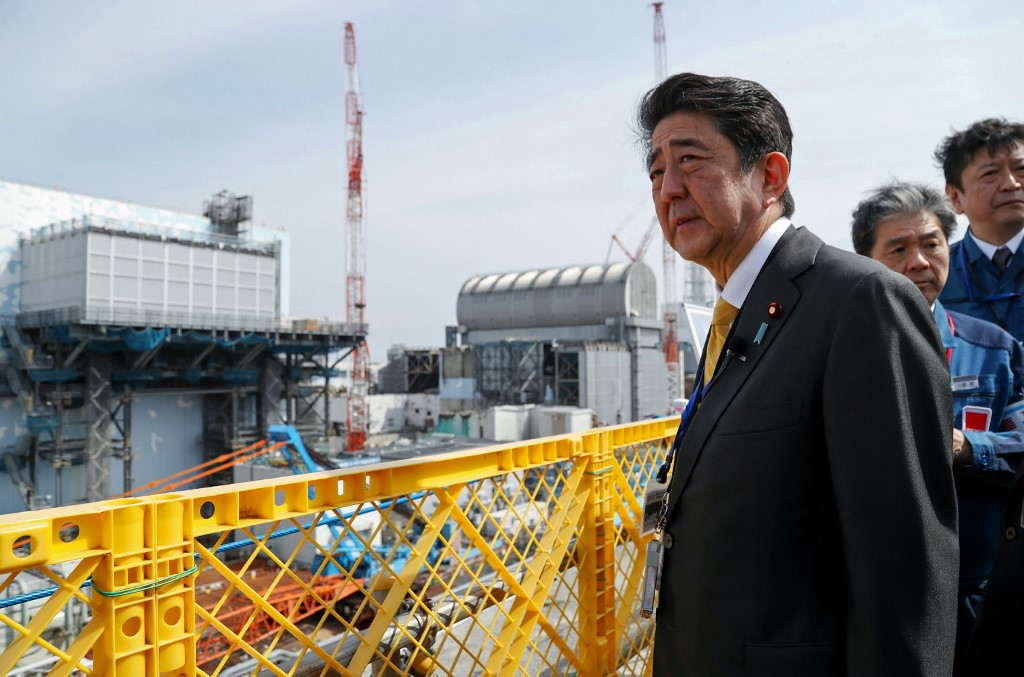Popular Reads
Top Results
Can't find what you're looking for?
View all search resultsPopular Reads
Top Results
Can't find what you're looking for?
View all search resultsJapan nuclear plants threatened with closure over antiterrorism measures
Nine reactors are currently online at five nuclear plants across the nation, and these are unlikely to have the necessary facilities completed before their deadlines. Consequently, it is possible that, one by one, these reactors will have to suspend operations.
Change text size
Gift Premium Articles
to Anyone
T
he Nuclear Regulation Authority has decided to order power companies to shut down nuclear reactors if they have not had certain facilities, legally required as antiterrorism measures, completed by specified deadlines.
Nine reactors are currently online at five nuclear plants across the nation, and these are unlikely to have the necessary facilities completed before their deadlines. Consequently, it is possible that, one by one, these reactors will have to suspend operations.
NRA Chairman Toyoshi Fuketa emphasized the nuclear watchdog’s tough stance at a press conference Wednesday.
Reactors will be considered “nonconforming with required standards at the point the deadline passes,” Fuketa said.
“Overlooking any state of incompatibility would, in light of the authority’s position, be totally unacceptable,” he said.
The operators are required to build facilities from which nuclear reactors can be remotely controlled in the event of an emergency, such as an aircraft being deliberately flown into the plants. Installing such a facility became mandatory under new regulations introduced after the March 2011 accident at Tokyo Electric Power Company Holdings, Inc.’s Fukushima No. 1 nuclear power plant.
The Nuclear Reactor Regulation Law stipulates nuclear plants that do not meet certain conditions can be suspended from operating, but no decision had been made on how authorities would handle reactors currently online if the deadline for completing the emergency facility passes.
The NRA initially demanded the power companies finish building the facilities by July 2018. However, due to safety checks taking longer than expected, the watchdog extended the deadline in 2015. From the approval of construction plans — including detailed designs for facilities at the power plant in its entirety — operators have to complete the emergency facility within five years.
Despite this, it has become apparent that each power company would not be able to meet the extended deadline. Construction has dragged on due to reasons such as the need to clear away a hill on a plant’s premises to build the facility or to dig a tunnel for vehicles involved in the work.
The No. 1 unit at Kyushu Electric Power Co.’s Sendai nuclear power plant was the first reactor in Japan to resume operations after the new regulations came into force. The deadline to build the required facility at this plant is March 2020, but Kyushu Electric expects this project will be completed about one year later.
Kansai Electric Power Co.’s Takahama nuclear power plant is required to build such a facility for its No. 3 reactor by August 2020, but there are concerns this work might take about another year. The NRA’s decision could have an impact on every reactor across the nation, including those yet to resume operations.
At a meeting with NRA officials on April 17, representatives from the utilities called for another extension of the deadline.
A week later, at a regular meeting, the five NRA commissioners unanimously opposed extending the deadline, with the reasons given including the fact that construction work “had not been significantly delayed by natural disasters.” Implementing alternative measures to the antiterrorism facilities would be very difficult, so the commissioners agreed that any reactor whose facility remained incomplete at the deadline would be idled.
Fuketa lobbed some stinging criticism at the utilities for the current situation.
“Not only were they overly optimistic about the construction work schedules, but they also were too optimistic about the reaction from the regulatory authorities,” Fuketa said. “They were grossly mistaken if they thought they might find a way through by asking for an extension when the deadline is drawing close.”
In a comment issued the same day, Kyushu Electric, Kansai Electric and Shikoku Electric said they would “continue making maximum efforts” to complete the facilities as soon as possible.
Profits could be hit
Halting the operation of nuclear reactors, which generate electricity at relatively low cost, could harm the earnings of power utilities and strike a major blow to their business performance.
Kyushu Electric is the utility facing the shortest deadline until it might have to switch off a reactor. Kyushu Electric’s No. 1 unit at the Sendai nuclear power plant was restarted in October 2015, which returned the company to profitability. Unplugging this reactor again would significantly affect the utility’s business performance.
Kyushu Electric had just this month cut power bills due to lower fuel procurement costs because nuclear power generation had restarted.
A Kyushu Electric representative said the utility was aware the antiterrorism facility was necessary to “further improve the safety” of the plant. Completing the facility before the deadline, however, is an extremely difficult circumstance.Speech










